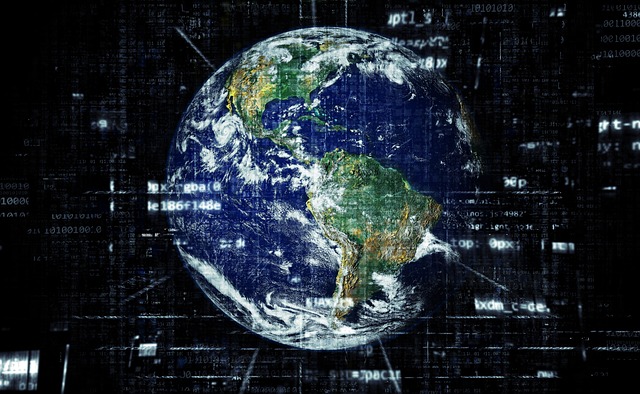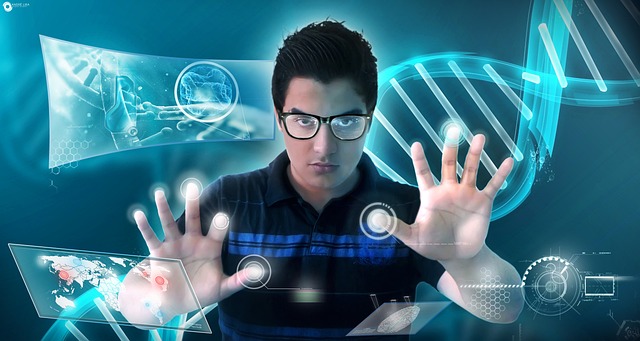# Revolutionizing Daily Life: The Unseen Impact of AI Technology on Our Everyday Interactions
Artificial Intelligence (AI) is no longer a concept confined to science fiction; it has seamlessly integrated into various aspects of daily life, transforming how we interact with the world around us. From personal assistants to advanced algorithms that curate our online experiences, AI technology has become an invisible yet omnipresent force shaping our interactions. This article explores the multifaceted impact of AI on our daily lives, focusing on communication, personal productivity, and social interactions.
## Enhancing Communication Through AI
The landscape of communication has undergone a remarkable transformation, thanks to AI-driven technologies. Chatbots and virtual assistants, such as Siri and Alexa, have revolutionized how we seek information and perform tasks. These AI systems utilize natural language processing (NLP) to understand and respond to user queries, making interactions more intuitive and efficient. As a result, the barriers to accessing information have significantly diminished, allowing users to communicate with technology in a more human-like manner.
Conversational AI has also found its way into customer service, where businesses employ chatbots to handle inquiries and support requests. This shift not only improves response times but also frees human agents to focus on more complex issues. Consequently, customers experience quicker resolutions while companies benefit from reduced operational costs. The efficiency brought about by AI in communication is reshaping customer expectations, leading to a demand for more immediate and personalized interactions.
Moreover, AI is enhancing communication beyond just verbal interactions. Tools powered by AI, such as Grammarly and Google Translate, are refining our written communication by offering real-time suggestions and translations. These applications help users convey their thoughts more clearly and accurately, bridging language barriers and improving overall comprehension. As a result, the way we communicate—both personally and professionally—has become more effective, fostering better understanding and collaboration.
## Boosting Personal Productivity with AI Tools
In the realm of personal productivity, AI technologies are redefining how individuals manage their time and tasks. Smart scheduling applications, such as Calendly and Microsoft Outlook’s scheduling assistant, leverage AI to optimize meeting times based on participants’ availability. This functionality eliminates the back-and-forth typically associated with scheduling, allowing individuals to focus on more critical aspects of their work.
Task management tools like Todoist and Trello have also incorporated AI features to prioritize tasks based on deadlines, user behavior, and project requirements. By analyzing patterns in user activity, these applications provide personalized recommendations, helping users allocate their time and resources more effectively. As a result, individuals can navigate their daily responsibilities with greater efficiency, leading to increased productivity and reduced stress.
Another significant advancement in personal productivity is the rise of AI-driven virtual assistants. These tools can automate routine tasks, such as data entry, email sorting, and reminders, allowing users to concentrate on higher-level strategic work. The ability to delegate mundane tasks to AI not only saves time but also enhances job satisfaction, as individuals can engage in more meaningful and creative pursuits. Consequently, the integration of AI into personal productivity tools is empowering users to achieve more in less time.
## Transforming Social Interactions and Relationships
AI’s influence extends beyond communication and productivity, reaching into the realm of social interactions and relationships. Social media platforms utilize AI algorithms to curate content, determining what users see in their feeds based on their interests and behaviors. This personalized approach enhances user engagement and fosters connections by presenting content that resonates with individual preferences. However, it also raises concerns about echo chambers and the potential for misinformation, highlighting the need for critical engagement with AI-curated content.
Furthermore, AI technology is reshaping how we form and maintain relationships. Dating apps like Tinder and Bumble employ algorithms to match users based on compatibility factors, such as interests and behaviors. By leveraging data analytics, these platforms aim to facilitate meaningful connections, although they also prompt discussions about the implications of algorithmic matchmaking on human relationships. The balance between technology-driven connections and genuine human interaction remains a topic of ongoing debate.
Interestingly, AI is also being used to enhance mental health support through applications like Woebot and Wysa. These AI-driven chatbots provide users with emotional support and coping strategies, offering a non-judgmental space for individuals to express their feelings. While these tools do not replace traditional therapy, they serve as accessible resources for those seeking immediate assistance. The integration of AI into mental health support reflects a growing recognition of the importance of emotional well-being in our increasingly digital lives.
## Conclusion: The Future of AI in Daily Life
The unseen impact of AI technology on our everyday interactions is profound and multifaceted. By enhancing communication, boosting personal productivity, and transforming social interactions, AI is revolutionizing how we navigate our daily lives. As we continue to embrace these advancements, it is essential to remain mindful of the ethical considerations and potential challenges that accompany the integration of AI into our routines.
Looking ahead, the future of AI in daily life promises even greater innovations. As technology evolves, we can expect more sophisticated AI systems capable of understanding context, emotions, and human nuances. This evolution will further enhance our interactions, making them more personalized and meaningful. However, it is crucial to strike a balance between leveraging AI’s capabilities and preserving the essence of human connection. Ultimately, the successful integration of AI into our daily lives will depend on our ability to harness its potential while remaining grounded in the values that define our humanity.











